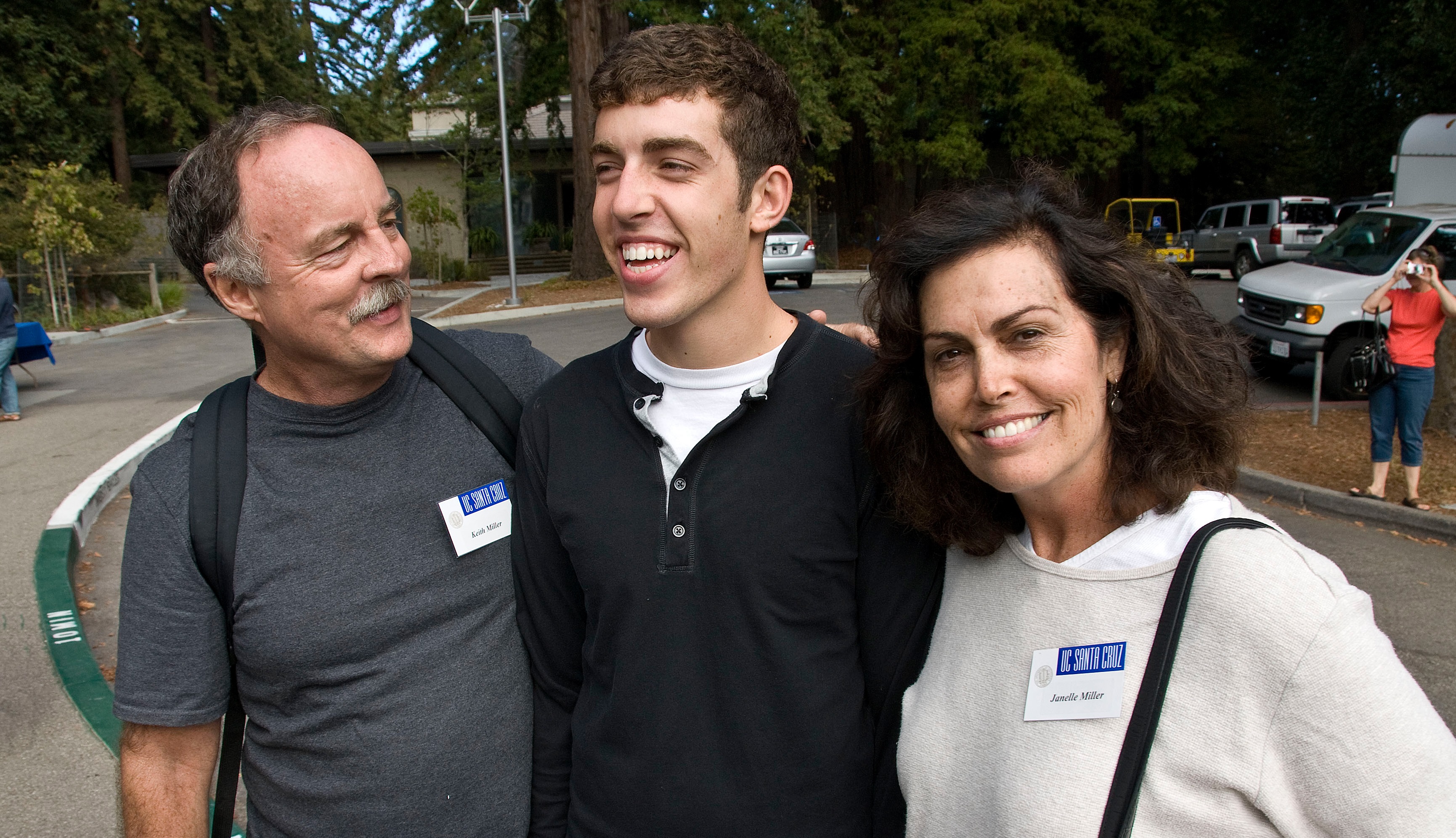FAQ for Parents/Family
As a parent or other family member (or friend or loved one) of a UCSC student, you may be in an important position to identify and help your student when they are in crisis or distress. This may be particularly true for students who cannot or will not turn to staff or faculty. Many of these students have not sought counseling and may be unaware of the services available to them. You may be the first to notice changes or hear about early signs of distress (e.g., when your student is home for a visit or calls or texts you). Students are apt to turn to you if they perceive you as available and willing to listen rather than criticizing, panicking, or trivializing their problems. Your expression of interest and concern may be a critical factor in saving your student's academic career—or even their life.
We have some Tips for Parents/Family on our website, including how to detect warning signs of distress in your student, how to talk to and emotionally support your student, managing your own feelings when your student leaves home, and helpful resources. Also, check out the website of the Jed Foundation (a nonprofit whose mission is to protect emotional health and prevent suicide among college and university students), including their "For Parents" page.
We know that many families have questions about the services that Counseling & Psychological Servivces (CAPS) provides and our work with students. Below is a list of some common questions we encounter. If you have other questions for us, please call us during business hours at (831) 459-2628.
- How do I refer my student to CAPS?
- I’m concerned about my student—what should I do?
- What are confidentiality laws as they pertain to my student?
How do I refer my UCSC student to CAPS?
A family member (or friend) can call CAPS with questions about our services or to consult about a student of concern. However, the student must call themselves to request an appointment. The way to make a first-time appointment is for the student to call at (831) 459-2628 or stop by the CAPS Central Office (Health Center building, East Wing, 2nd floor) during business hours (Mon–Fri, 8:00 a.m.–5:00 p.m.); they will be assisted by one of the CAPS front office staff. In most cases, they will be given an appointment for a brief in-person assessment by one of our counseling staff within a few business days. During this assessment, the counselor will ask questions to learn more about the student's needs and history and talk about available resources and next steps, which may include groups, workshops, individual counseling on or off campus, medication services, self-help resources, academic services, or other resources. In crisis situations (when the student's needs require urgent attention due to risk to self or others or other crisis situations), they may be seen by the counselor on call at our Central Office during business hours. After hours and on weekends and holidays, crisis counseling is available by phone to UCSC students and concerned families and friends: Call (831) 459-2628 and follow the menu options to talk to a crisis counselor.
I'm concerned about my UCSC student—what should I do?
CAPS is available by phone for consultation to family members and friends who are concerned about a UCSC student's mental health. We invite concerned persons to call our office at (831) 459-2628 during business hours (or in crisis situations, 24/7) to learn how to help the student of concern and find out about resources are available on and off campus. Note that by law we cannot reveal any information to callers about a student without their permission, except in rare emergency situations. See the next section for more information on confidentiality. Also see our Tips for Parents/Family.
What are confidentiality laws as they pertain to my UCSC student?
State and federal laws regarding mental health care prevent CAPS staff members from sharing information with others (including family members) about a student's visit to or treatment at CAPS (including whether we have treated or are currently treating a student) without the student's written consent. For these reasons, we may not be able to provide specific information about your student if you call us for consultation (e.g., whether your student came to CAPS or how they are doing). However, we may legally listen to your concerns and get information about the student's situation. We may also give you general information about our services, what happens in a crisis situation, advice about your student, and resources available to students. The only situations when we may legally breach confidentiality are when the student is at imminent risk of harm to self or others because of their mental health. If you have questions regarding confidentiality, please contact our Central Office at (831) 459-2628.

